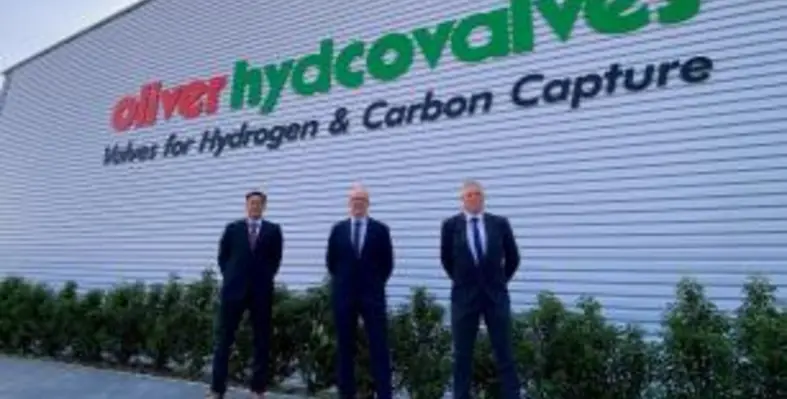Oliver Valves family of companies intends to drive its decades of oil and gas valve, coupled with world leading R&D capability, into the green energy and emission abatement sector using the newly incorporated Oliver Hydcovalves Ltd company as the vehicle
Climate change due to global warming is now proven to be symptomatic of manmade greenhouse gas emissions.
Since the dawn of the industrial revolution our energy demands have been met by the combustion of fossil fuels, the emissions created have rapidly accelerated the global warming effect
The 2015 Paris agreement, and those countries party to it, set a limit on the increase in average global temperature to no more than 1.5?C by 2050. Many governments recognise the need to cut greenhouse gas emissions well in advance of the 2050 deadline. Noting the timescales defined in these commitments, we can draw the conclusion that this is a plan to transition away from fossil fuels rather than simply turning off the pumps.
Recognising that the industry as a whole now faces the challenge of transitioning to a future with net zero emissions, Oliver Hydcovalves Ltd is the latest addition to the Oliver family. Incorporated with the primary objective of providing valve technologies that support the net zero emission targets of industrial users, the company will build on the four decades of expertise held within the Oliver companies.
Carbon Capture & Storage (CCS) entails capturing CO2 from industrial emissions then transporting it to be permanently stored. The CO2 is compressed into liquid form for transportation to depleted oil and gas reservoirs or other geological storage sites, with the most cost-effective transportation method being via pipeline. With the percentage of CO2 captured from flue gases continuing to increase towards 100%, CCS provides a means to decarbonise the use of fossil fuels whilst transitioning to alternative energy sources.
Valves from the Oliver Twinsafe range are ideally suited for the new pipeline infrastructure that will be required for this rapidly expanding decarbonisation technology. Where subsea CO2 storage is required, valves from the Oliver Valvetek range have already been successfully deployed at the injection wellhead subsea tree.
'Hard to abate' industries, that is, those where switching to less environmentally impactful operations is not possible or extremely difficult, will need to adopt alternative, high density fuel sources including hydrogen.
With some of the most rigorous development and testing regimes in the industry, valves from the Twinsafe range can meet the requirements for the safe transportation of hydrogen in pipelines or storage vessels.
Valve development for the emerging hydrogen transport and refuelling industry is ongoing with testing to ISO19880-3:2018 underway at Oliver Valves' industry leading R&D facility in the UK.
For further information contact Rob Porter at







